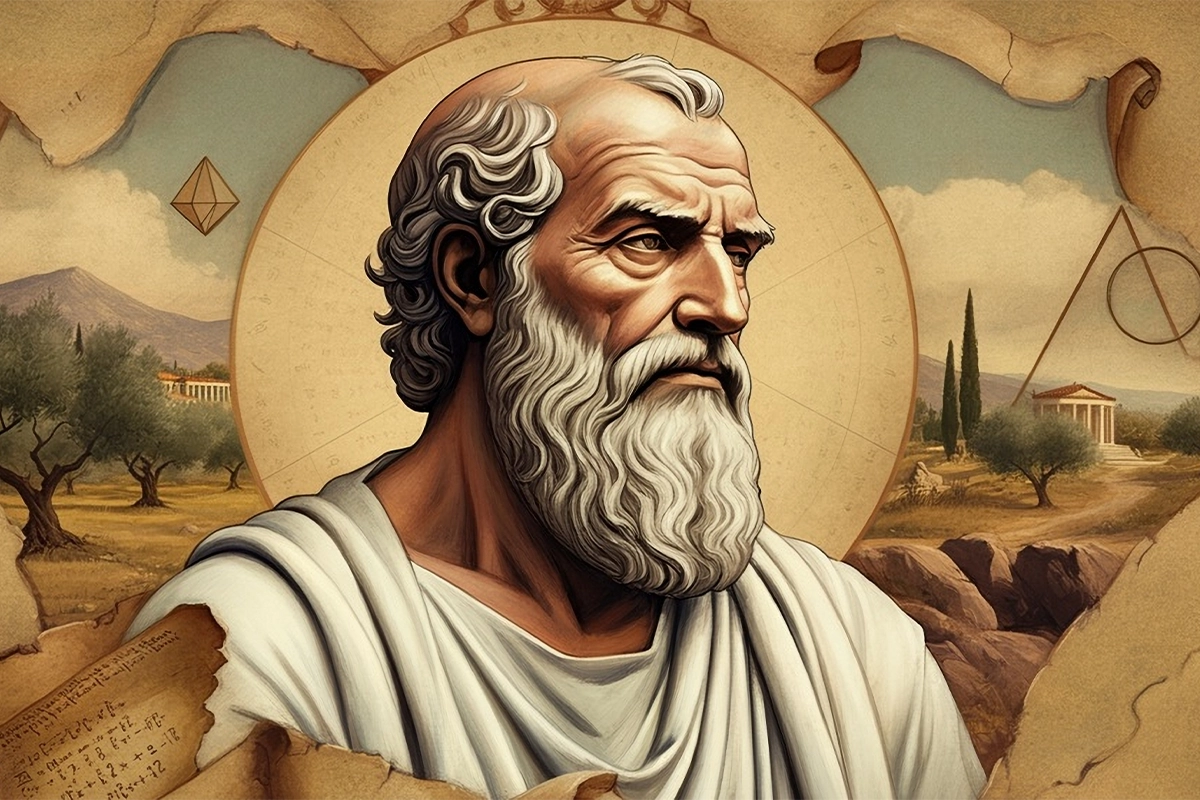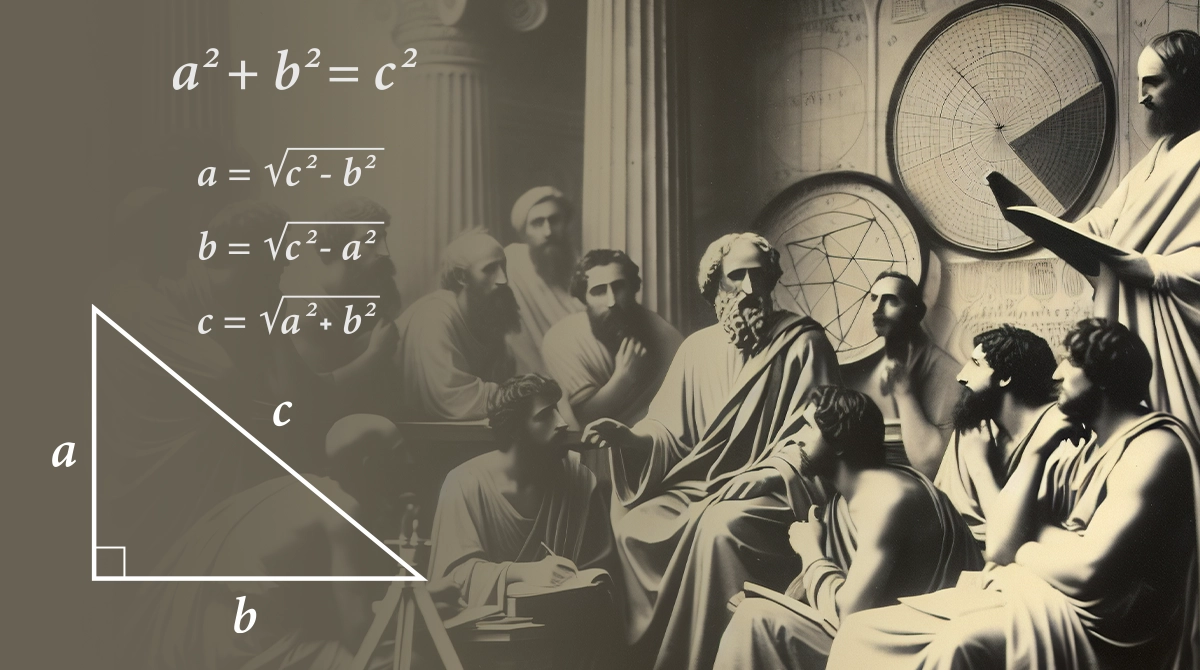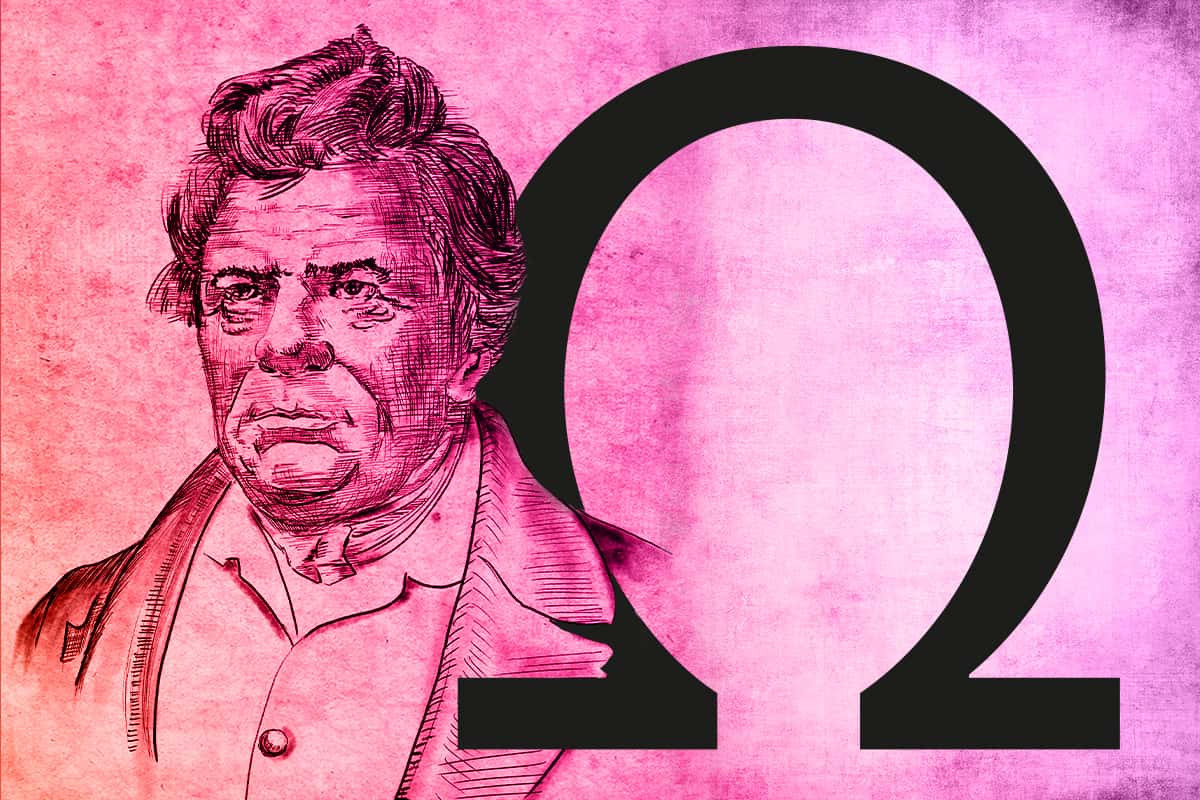
What is in this article?
Having left a deep trace in the ancient world both through his contribution to mathematics and his philosophical views, Pythagoras still has a big impact on numerous fields today. The famous philosopher believed in the mysterious world of numbers and the order of the universe, and his theorem in geometry and the school he founded did not only change mathematical thought but also shaped philosophical and ethical values. Now, let’s take a closer look at the life, work and philosophical legacy of Pythagoras to explore his lasting impact on humanity.
Who is Pythagoras, the Mysterious Scholar of the Ancient World?
One of the most mysterious and impactful people of the ancient world, Pythagoras left a deep trace in history with his important discoveries in mathematics and deep philosophical views. Known not only as a mathematician but also as a philosopher and a scholar, Pythagoras pushed the limits of science and philosophy with his belief in the mysterious world of numbers and the order of universe. His contribution to geometry through the Pythagorean Theorem is still thought in all educational systems today. His philosophical beliefs and the School of Pythagoras he founded became famous as a center of knowledge and teaching, which was not limited to mathematics only.

The Life and Education of Pythagoras
Pythagoras was born on the Samos Island in Greece in 570 B.C., and discovered his interest in science and philosophy at an early age. He got educated by famous scholars of the era, which led the way for him to have different views on science and philosophy. He traveled to centers of science at that time like Egypt and Babylon to further deepen his knowledge at a young age. This trips had a significant impact on both mathematical and philosophical views of Pythagoras. In particular, the knowledge he got from temple priests in Egypt on geometry and astronomy is one of the elements that shaped his scientific background.
The educational adventure of Pythagoras combined the scientific methods of the time with his own doctrine, which created his unique perspective. The mathematical knowledge he gained in Babylon strengthened his interest especially in mysterious features of numbers. All of this experience resulted in Pythagoras seeing numbers not as a mathematical instrument but also as one of the numbers explaining the mystery of the universe. Thus, he developed a mindset where numbers are the core in his scientific research.
Pythagoras settling in Crotone, Italy to spread his knowledge and found his own philosophical school is one of the most important milestones in his life. The School of Pythagoras he founded there is of paramount importance in terms of sharing knowledge and the development of philosophical thinking. He educated his pupils not only in mathematics and geometry but also in ethics, politics, the order of the universe, among others. The principles Pythagoras believed in and the knowledge he spread throughout his lifetime allowed him to be know not only as a scientist but also as a scholar.
The Pythagorean Theorem and Its Significant Contribution to Mathematics
The Pythagorean Theorem is one of the most widely known and permanent work if Pythagoras in mathematics. Explaining the relation between the sides of right-angled triangles, this theorem is one of the cornerstones of geometry. According to this theorem, the square on the hypotenuse in a right-angled triangle is equal to the sum of the squares of the other two sides. This simple but strong relation is applied not only in geometry but also in many other fields in science such as engineering, physics and astronomy.
Pythagoras is known both for his theorem and for his innovative approach to mathematical thinking. Known as Pythagoreanism, this approach accepts numbers as the core of existence rather than seeing them as an arithmetical instrument only. According to Pythagoras, numbers are a secret language underlying all objects, incidents and the order in universe. Especially the symbolic meanings of basic numbers like “1” and “2” have an important place in his philosophical doctrine.
Another significant contribution by Pythagoras was that he turned mathematics into a systematical discipline. In his time, mathematics was rather seen as a tool to solve practical problems but Pythagoras and his followers gave it a more abstract structure. Pythagoreans deeply investigated concepts about numbers, proving that mathematics was not only a practical science but also an intellectual pursuit.
 Deep Philosophical Views of Pythagoras
Deep Philosophical Views of Pythagoras
Pythagoras believed that numbers played a key role in explaining all existence and incidents in universe; according to him, numbers were not only mathematical values but also sacred and mystical symbols explaining the order of the universe. So, he believed that the universe could be understood through numbers and remarked that there was a numerical order in the core of everything. This belief in the sacredness of numbers carried him beyond mathematical thought, allowing him to develop a philosophical approach.
The concepts of harmony and order also have an important place in philosophical views of Pythagoras. According to Pythagoras, the universe is in harmony as a whole. This harmony is seen especially in the ratios that can be expressed in numbers in music. Pythagoras discovered that the note intervals in music can be explained through mathematical ratios and remarked that the universe works in harmony. This view allowed him to bring about a new perspective both on musical theory and the running of the universe. The idea of harmony in music symbolizes the overall order of the universe, which Pythagoras called the “cosmos”, and stands at the core of his philosophical approach.
The School of Pythagoras and Its Loyal Pupils
Pythagoras passed down his scientific views to his pupils through the school he founded in Crotone, South Italy. Known as the School of Pythagoras, this institution was not only an educational center but also the center of his life style. Pythagoras and his pupils conducted mathematical and philosophical work while also working in a certain discipline of life. At the School of Pythagoras, fields of science such as mathematics, geometry and astronomy were taught, and the pupils had to live up to rules that supported their spiritual and ethical development.
The School of Pythagoras also had an effect on the political and social structure of the time. The school hosted a significant population in Crotone, and the doctrine of Pythagoras impacted the local people, too. However, the power and secrecy of the school caused some social unrest in time. This resulted in Pythagoras and his followers being expelled from school, which then fell apart. However, the impact of the School of Pythagoras and the students educated there allowed the teachings of Pythagoras to be passed down throughout generations, enabling them to have an effect even today.
 The Mysterious Path of Mathematics: Pythagoreanism and Mystical Beliefs
The Mysterious Path of Mathematics: Pythagoreanism and Mystical Beliefs
Pythagoreanism is not only a mathematical theory; it is also a deep view of the world shaped by mystical beliefs. Pythagoreans attributed both a mathematical and a spiritual meaning to numbers. Also, in Pythagoreanism, it is believed that music and mathematics are unique instruments to solve the mysteries of the universe.
Pythagoreanism also believes in the eternity of soul and reincarnation. According to Pythagoras, the soul is independent of the body and is born into a new body after death. This belief has an important place in the life styles and ethical values of Pythagoreans. The keystones of the Pythagorean belief is to try to preserve the purity of soul, strictly adhering to ethical values and living up to a certain discipline of life. For Pythagoreans, purification of soul is possible through knowledge and mathematical harmony. Therefore, solving the mystery of numbers is both a scientific and a spiritual journey to them.
 The Permanent Legacy of Pythagoras in Science and Philosophy
The Permanent Legacy of Pythagoras in Science and Philosophy
The legacy of Pythagoras in science and philosophy still exists today as his thoughts on universe have been passed down through generations. The Pythagorean Theorem in mathematics became one of the keystones in modern engineering and physics theories as well.
The mystical meanings that Pythagoras attributed to numbers left a deep trace also on philosophical thinking. His belief that numbers reflected the order of the universe inspired subsequent philosophical thoughts. In the Middle Age, numerous philosophers were affected by the Pythagorean philosophy, which allowed them to develop thoughts that combined mathematics and philosophy. In particular, philosophers such as Platon were inspired by the idea of a universe based on the mystery of numbers and shaped their thoughts around this view.
Pythagoras’s deep philosophical views, his contributions to science and philosophy as well as his mystical perspective on numbers have inspired countless scientists and philosophers through centuries, especially in the field of quantum. To learn about quantum, you can check our blog “What is Quantum Mechanics?” To sum up, his innovative approach in mathematics, his belief that he considered the universal language of numbers and the School of Pythagoras he founded not only affected his own era but also had a big impact on subsequent systems of thinking.
Do you think that this unique perspective and doctrine of Pythagoras are still valid today? Do you believe that the aforementioned unique legacy should have a bigger place in the world of modern science and philosophy? You can share your ideas to contribute to other readers!

 Online Services
Online Services Application Inquiry
Application Inquiry Pay Assurance Fee
Pay Assurance Fee Query Installation Number
Query Installation Number Compensation Fee Inquiry
Compensation Fee Inquiry Automatic Payment Order Inquiry
Automatic Payment Order Inquiry Partnership
Partnership





Leave a Comment